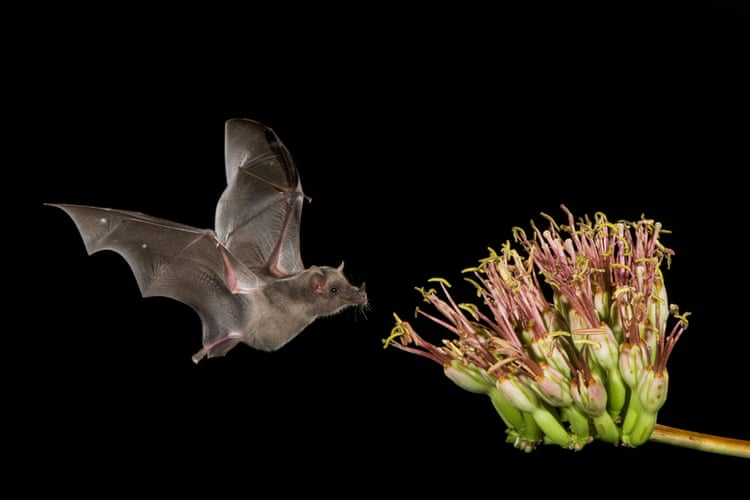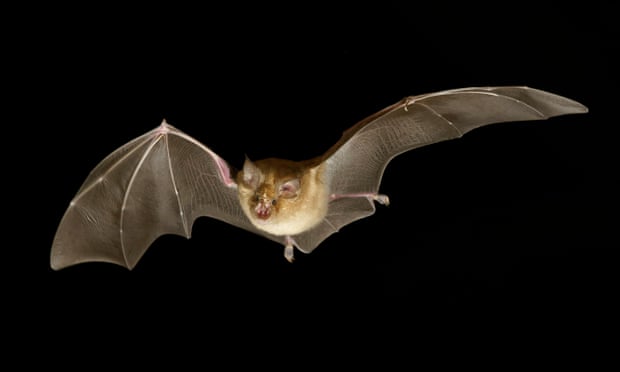Bats: the nocturnal creatures that often evoke images of darkness, are rarely celebrated for their contributions to our ecosystems. Yet, if you’ve ever savored a cup of coffee, indulged in a juicy mango, or sipped on a margarita, you might owe a debt of gratitude to these winged mammals.
Despite their ominous reputation, bats play crucial roles in our food systems, often unnoticed and underappreciated. They serve as natural pest controllers, feasting on insects that threaten crops like corn and pecans. Additionally, bats are vital pollinators for various plant species, including bananas, avocados, and agave—the key ingredient in beloved spirits like tequila and mezcal.
Take, for instance, the Mexican long-nosed bat, a tiny creature crucial to the pollination and seed dispersal of agave plants. As demand for agave-based spirits surges, driven by trends in the United States, these bats face mounting risks due to unsustainable harvesting practices.
Diana Pinzón, a forestry engineer, warns of the consequences of unchecked demand for agave. She stresses the importance of limiting production to ensure the survival of both agave plants and their bat pollinators. Pinzón’s small-label brand, Zinacantán Mezcal, exemplifies sustainable practices by leaving a portion of the crop for bats.
Meanwhile, in Texas, farmer Troy Swift has embraced bats as allies in pest control. Inspired by bat conservationist Merlin Tuttle, Swift installed bat houses on his property and witnessed a dramatic reduction in insect pests. Studies show that bats provide invaluable pest-control services, saving billions of dollars in crop damage annually.
However, despite their invaluable contributions, bats face numerous threats, from habitat loss to Climate change-induced weather extremes.
Conservation efforts are underway, including initiatives to plant agave along migratory paths and promote responsible interactions with bat habitats. Individuals can also play a role in bat Conservation by building bat houses, cultivating bat-friendly gardens, and spreading awareness about the importance of these creatures.
As Kristen Lear of Bat Conservation International emphasizes, simple actions like talking about bats can foster public Support for their Conservation.
This article by Trinity Sparke was first published by One Green Planet on 25 March 2024. Image Credit :Rudmer Zwerver/Shutterstock.
What you can do
Help to save wildlife by donating as little as $1 – It only takes a minute.







Leave a Reply